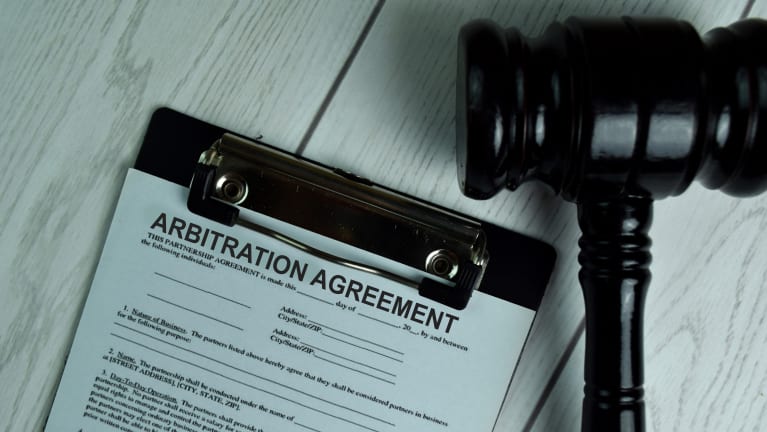

Takeaway: Where an employer failed to pay required arbitration fees on time, the employee could unilaterally withdraw from arbitration and pursue his workplace claims in court.
An employer that failed to pay the required arbitration fees on time could not compel an employee to submit his workplace claims to arbitration, a California appeals court recently ruled.
Following the employer’s failure to meet the original deadline, the arbitration panel set a new deadline, which the employer met. However, the appeals court said, the applicable California law establishes a “bright-line” test—when the party that pressed for arbitration fails to pay its arbitration fees at the required time, the other party may unilaterally withdraw from arbitration. The statute does not empower an arbitrator to cure a party’s missed payment, the court said.
After his termination at Los Angeles-based Skyview Capital, the California worker sued his former employer in state court. The employer moved to compel arbitration, and the trial court granted the motion and stayed proceedings. The case went before a panel of three arbitrators through the American Arbitration Association. After at least one continuance, the final hearing on the merits was set to begin Aug. 5, 2021.
The employer had to pay arbitration fees ahead of the hearing. The fees were due June 4, 2021.
On July 7, 2021, the employee’s counsel asked the case manager whether the employer had paid the fees. On July 8, 2021, the case manager confirmed that the employer had not paid. The manager scheduled a call to address the situation. During the call, the employer’s counsel reported there was “no further explanation” for his client’s failure to pay the fees. The panel set a new deadline of July 14, 2021, for payment of the fees.
The employee’s lawyer then notified the panel that the employee was withdrawing from arbitration under section 1281.98 of California’s civil procedure code. The panel chair responded that the employee’s request was “premature”—presumably because the deadline was now July 14. The panel ruled that section 1281.98 was not in play because the employer “came into compliance with the Panel’s Orders regarding posting deposits.” The employer ultimately paid its fee by July 14.
On July 21, 2021, the employee filed in the trial court a section 1281.98 election to withdraw from arbitration. The trial court granted the employee’s request, and the employer appealed.
Curbing Arbitration Abuse
In 2019, the California Legislature enacted section 1281.98 to curb a particular arbitration abuse, the appeals court noted. The abuse was that a defendant could force a case into arbitration but, once there, could refuse to pay the arbitration fees, thus effectively stalling the matter and stymying the employee’s effort to obtain relief.
The statute provides that, if an employer requesting arbitration has not paid the fees in time, it is in material breach of the arbitration agreement and waives its right to compel the employee to proceed with that arbitration. The employee may then elect to withdraw the claim from arbitration and proceed in court, the appeals court explained.
Based on the statute’s language and history, the court concluded that it established a “bright-line” rule that when the employer fails to pay its arbitration fees on time, this entitles the employee to withdraw unilaterally from arbitration.
The employer’s fees were due June 4, 2021. By July 9, the employer had not paid and was therefore in material breach of the parties’ arbitration agreement. The employee was entitled to withdraw from the arbitration. “It is that simple,” the court said.
Furthermore, the statute does not empower an arbitrator to cure a party’s missed payment. “There is no escape hatch for companies that may have an arbitrator’s favor. Nor is there a hatch for an arbitrator eager to keep hold of a matter,” the court said.
If the employer were permitted numerous continuances for failure to pay arbitration fees, therefore delaying the proceedings, section 1281.98 would have no meaning, force or effect, the court added. It affirmed the trial court’s order allowing the employee to withdraw from arbitration.
Cvejic v. Seaview Capital LLC, Calif. Ct. App., No. B318880 (June 28, 2023).
Joanne Deschenaux, J.D., is a freelance writer in Annapolis, Md.
